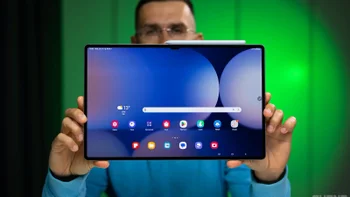Google is making changes to Search, removing potentially dangerous autocompletes

Google is constantly making tweaks to its search algorithms to deliver better results but most remain behind the scenes. Some, however, have to be explained in order to avoid confusion among users.
Yesterday, Google announced the latest changes that are coming to Search in a blog post on the company’s official blog, The Keyword. The changes all seem to reflect the current situation in the world in several aspects and are looking to protect users from misinformation.
First on Google’s list are improvements in the detection of breaking news and crises. If we can say one thing about 2020, it’s that there’s no lack of crises. Well, now if you want to learn more about something that’s happening right now, Google should be better at recognizing that intent and providing you with information from trusted sources.
The same effort goes into Google’s Knowledge Graphs, which you might better know as those panels on the right that show summarized information about your search subject. To make sure you’re getting reliable information, Google improved its partnerships with government agencies, health organizations and Wikipedia.
Additionally, Google is putting more effort into fact-checking, donating $6.5 million to fact-checking organizations and nonprofits and clearly marking fact-checked information in Search.
Perhaps the biggest change is the one that involves the Google Search autocomplete feature. For search predictions, Google says that it has “improved our automated systems to not show predictions if we detect that the query may not lead to reliable content.”
Most importantly, that includes politics-related searches. Google “will remove predictions that could be interpreted as claims for or against any candidate or political party. We will also remove predictions that could be interpreted as a claim about participation in the election—like statements about voting methods, requirements, or the status of voting locations—or the integrity or legitimacy of electoral processes, such as the security of the election.”
This change comes in a very timely manner as the US presidential election is rapidly approaching. Whether or not it will have the intended effect perhaps only Google will know.
Yesterday, Google announced the latest changes that are coming to Search in a blog post on the company’s official blog, The Keyword. The changes all seem to reflect the current situation in the world in several aspects and are looking to protect users from misinformation.
Additionally, Google is putting more effort into fact-checking, donating $6.5 million to fact-checking organizations and nonprofits and clearly marking fact-checked information in Search.
Most importantly, that includes politics-related searches. Google “will remove predictions that could be interpreted as claims for or against any candidate or political party. We will also remove predictions that could be interpreted as a claim about participation in the election—like statements about voting methods, requirements, or the status of voting locations—or the integrity or legitimacy of electoral processes, such as the security of the election.”
Google highlights that this only concerns what you will see or rather not see as autocomplete suggestions and doesn’t affect your ability to perform any searches you’d like or their results.
This change comes in a very timely manner as the US presidential election is rapidly approaching. Whether or not it will have the intended effect perhaps only Google will know.
Follow us on Google News













Things that are NOT allowed:
To help keep our community safe and free from spam, we apply temporary limits to newly created accounts: